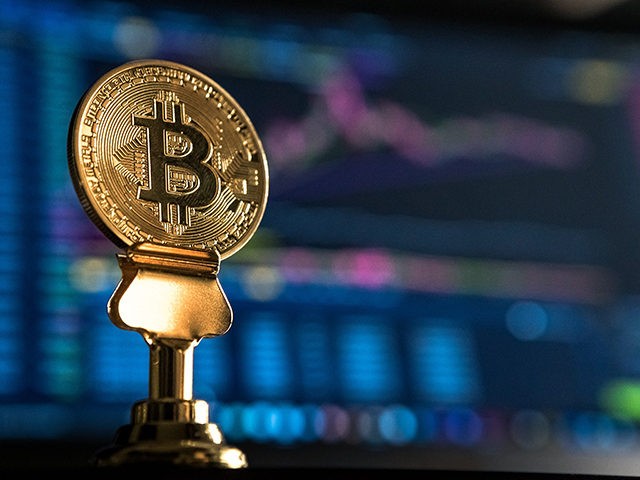The parliament of the Central African Republic (CAR) passed a bill last week legalizing Bitcoin and other cryptocurrencies as official forms of currency, CAR’s presidency announced Wednesday.
“A bill governing the use of cryptocurrency was adopted unanimously by parliament last week,” Reuters quoted Obed Namsio, the chief of staff of CAR President Faustin-Archange Touadera, as saying in a statement issued on April 27.
“The president supports this bill because it will improve the conditions of Central African citizens,” Namsio told Reuters on April 27.
CAR’s presidential office statement described the new legislation as “a decisive step toward opening up new opportunities for our country” and as indicative of CAR’s purported status as one of the globe’s “most visionary countries.”
The development means CAR is now the second nation in the world to adopt Bitcoin as a legal tender after El Salvador did so in September 2021.
CAR is one of the poorest nations in the world despite its natural abundance of valuable minerals and precious metals, such as diamonds and gold. The country is one of six that uses a regional currency known as the Central African CFA franc as legal tender. The Bank of Central African States (BEAC) governs the use of the CFA franc in coordination with the European Union (E.U.).
“The BEAC must through the monetary union maintain at least 50% of foreign assets with the French Treasury, an arrangement that has been criticised as holding back economic development,” Reuters noted on April 28.

Central African Republic’s President Faustin-Archange Touadera reviews the troops upon his arrival at the presidential palace in Abidjan on November 7, 2016. (Photo credit should read ISSOUF SANOGO/AFP/Getty Images)
CAR’s government adopted Bitcoin as a legal tender last week without notifying the BEAC ahead of time. Observers of the surprise action speculated on Thursday that CAR may not have adopted Bitcoin for its practical use, as only 11 percent of the CAR’s population of 4.8 million accessed the internet in 2021, according to DataReportal website estimates. Some financial analysts believe CAR instead legalized Bitcoin for symbolic purposes, such as a means to signal its alleged dissatisfaction over the CFA franc’s ties to the Euro, or the official currency of the E.U.
CAR’s crypto legislation “reflects regional disquiet over the use of the CFA franc, with its colonial overtones,'” Rahul Shah, the head of financials equity research at Tellimer, told Reuters on April 28.
The business-focused news outlet CNBC observed on April 28 that CAR’s political ties to Russia may have influenced the nation to adopt Bitcoin for its lack of regulation by state actors.
“Experts suggested the move could help small countries like the CAR reduce their dependence on the U.S. dollar for global trade,” the news outlet noted.
CNBC referred to an established global consensus over the past several decades that holds that the U.S. dollar is the “world’s reserve currency.” The assertion is based on the fact that any economy hoping to conduct meaningful business on the world’s stage must base its transactions on the U.S. dollar.
“[T]he [U.S.] dollar has been the global oil currency since the 1950s,” Ransu Salovaara, the CEO of a crypto platform called Likvidi, pointed out to CNBC on Thursday.
“Oil dependence is a major issue now, because of the Ukraine [sic] and the SWIFT banking ban, so global, unstoppable cryptocurrencies like bitcoin can really shine [sic],” he opined.
Salovaara referred to Russia’s latest war with Ukraine, which began on February 24. The development spurred the U.S. government to lead an economic campaign against Russia meant to punish the country for its military action against Kyiv. The campaign includes sweeping financial sanctions imposed on Russian companies and entities by Washington and its allies.
“Russia faces deepening isolation and economic turmoil as it continues to be hit with an array of sanctions that effectively cut off Moscow’s major financial institutions from Western markets,” Reuters explained in a regularly updated report tracking Western financial sanctions imposed on Russia since February 24.
The E.U. announced on March 2 plans to exclude seven Russian banks from the SWIFT financial messaging system by March 12 as part of a broader package of financial sanctions against Moscow. The New Yorker on March 8 described the action as “an almost unprecedented step toward blocking Russia’s ties to the international financial system.”
SWIFT is an acronym for the “Society for Worldwide Interbank Financial Telecommunication.” The messaging platform links 11,000 financial institutions across 200+ countries.
“The system does not handle the transfer of money itself, nor does it hold assets or settle transactions. Rather, it functions like a secure e-mail system for financial transactions, containing instructions for the movement of funds, along with bank codes, routing numbers, and other identifiers,” according to the New Yorker.
“It is rare for countries to be blocked from using it [SWIFT]; in 2012, for example, Iran was removed from swift after sanctions were applied in response to concerns about the country’s nuclear program,” the magazine noted.

COMMENTS
Please let us know if you're having issues with commenting.